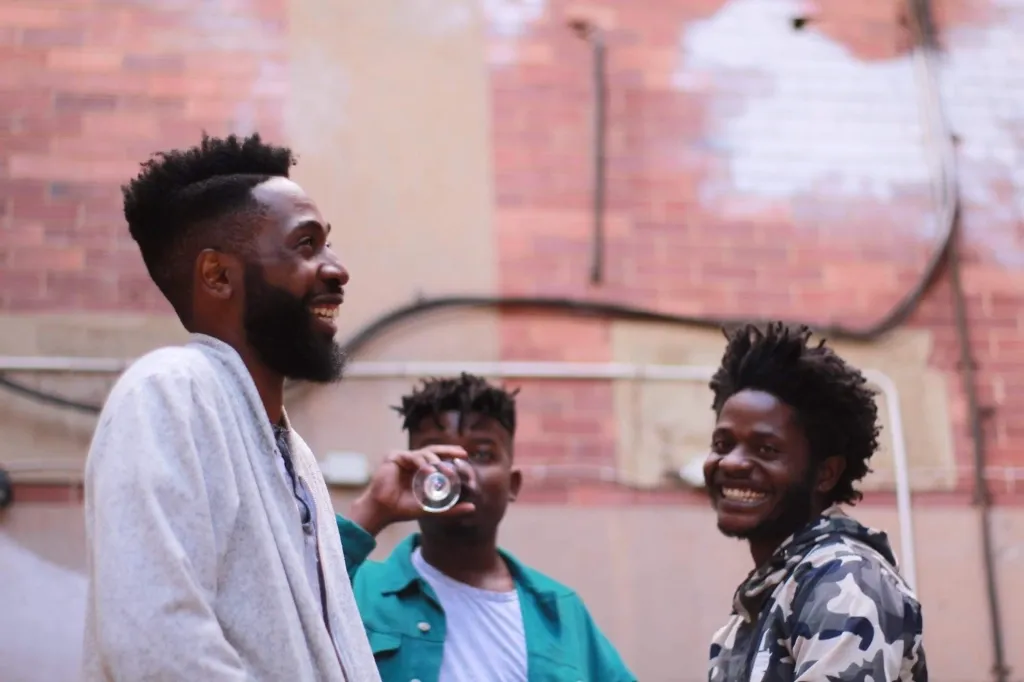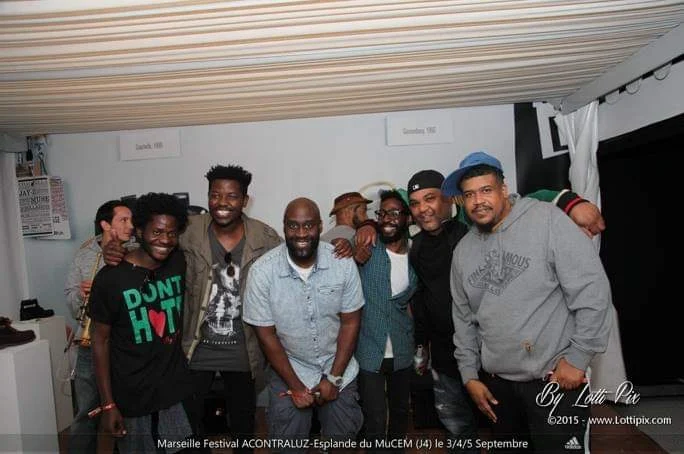I’ve always found the artistic process intriguing. There is something mighty about being able to fill a blank page, a black canvas, or conceptualizing music from a single note. I view artists as magicians, weaving magic with the project and producing purpose-driven narratives that stay true to their being. A creatives work is profoundly personal as it is an extension of the soul. It is their “raison d’etre” and serves as an extension of their identity. I’ve always attempted to add a bit of artistic flair and make my work an extension of my purpose like artists do. I’ve also noticed that the most successful people in life are humble- and that is also true for artists.
My recent encounter with Joshua Madalitso Chiundiza was a lesson on humility. Josh, despite having been a creative who has achieved great triumphs across different continents had the aura of someone who has something to prove. He is an audio/visual artist who is like a walking library of knowledge.
Being invited to an artist’s workplace is like joining hands in prayer, a prestigious honour, and I consider myself lucky to have been a visitor at Joshua Chiundiza’s studio. As soon as I entered through the door, I felt the cozy interior design aesthetic which was very conducive forto creative expression. Everything about the space from the selection of furniture to the art on the walls felt intentional and gave the room a sense of character.
We discussed everything from the purpose of art to what Zimbabwean artists can do to export their craft. I also got the opportunity to skim through his diverse vinyl collection which pairs artists like Leonard Dembo with some international bands you’ve probably never heard of. I went on to ask a few questions and here is what he had to say:
I come from a musical family, so it’s been a part of me. My Mum is a musical therapist she runs a practice in Australia, my dad is a pastor, but he’s always been musically inclined. A lot of my uncles were also musicians, so music and art have always been there."
At what age did you start nurturing your creative side?
I started in high school when I started experimenting with animation and graphics. In form one, I taught myself how to use Coral Draw. My Dad got a camera, so I’d play around with that. There were a lot of instruments in the house growing up, so I learned to play but I only started production in college. That’s when I started playing around with sound and hanging around musicians.
How would you describe your sound and visual aesthetic?
In terms of sound, I’ve been really influenced by Hip Hop. J Dilla, Madlib, and Flying Lotus introduced me to sampling. I think Hip-hop has also influenced me in visuals because I loved looking at archives.
Do you think artists in Zim don’t sample enough work from past local artists?
In Zimbabwe, I don’t think we do it enough, particularly in the music scene. Visual artists have always paid homage to past artists like if you look at the artists now have continued the 1950s sculpting and painting movement. Jah Prayzah and Tanto Wavie are contemporary artists that are continuing the musical movement by modernizing local sounds
What have you learned during your time on tour?
I started touring in 2012 with the Monkey Nuts and the greatest thing about touring is getting to meet artists and hearing their stories. I remember in Johannesburg we met the late Hugh Masekela and he told us about his time in Zimbabwe and how he was learning Shona. It’s experiences like that that teach you lessons about life, a lot of the guys we encounter are legends, but they are also humble. I also got the chance to meet my favourite Hip Hop De La Soul and they were down to earth. I realized that if you want to have a long and successful in art be humble and stay learning. Asking a lot of questions is good.
I’ve been mainly looking at art from an African perspective. The return of the African art debate made me think of the meaning of art. Africans tend to look at art differently. I think art traditionally has always been about community and what sort of skill the artist contributes for the benefit of everyone. Whatever the medium is the concept or philosophy is to make the community better.
In essence, it tends to lean on a moral standing. I think art has always been community-based. Looking at it from a Shona perspective, we don’t have a word for art or artist.
You find that most definitions are craft specific like a painter or a sculptor. People in our society we’re taught to do a lot of things that are considered art today. You find that the person who built houses, who will call an architect now would be responsible for agriculture, and mining because they were artistically inclined. There weren’t also necessary in a studio, but they used their gifts to serve the community.
The artists were heavily involved in shaping their culture. Now when looking at the return of African art debate, the Europeans might have taken the art because of aesthetics but for Africans, the art represents an aspect of religious belief, or it was part of rituals that shaped the community. Art right at the core of it should be shaping the community for the better. I think artists are very good solution-based thinkers.
What do you think about social media and how do you think it has affected art?
I love it I think it’s made art accessible. I think art has always had an elitist feel which has made it exclusive, but I think in the digital space artists can share their work whenever they want, however they want. It’s a tool that’s empowered a lot of artists to get their work out there.
What do you think is the biggest hurdle for Zimbabwean music to go international?
I think what’s unfortunate about our scene is: that we can be a bit superficial with our definition of professionalism. What most artists portray in their art and how they are living is completely different. Not because there’s a lack of talent but we are lacking the business and administration of art. If you look at countries like Nigeria, they are intentional about monetizing the process. We have some very talented people in Zim but because of poor management and financial literacy, they continue to cut themselves short.
What does the future hold for Joshua Chiundiza?
I’m working on 3 projects I’m really excited about: The first is a Bantu Spaceships project in collaboration with- Zimbabwean French Label Nyami Nyami Records. It should be dropping at the end of the year.
The second project is a performance at the Artillery gallery on the 25th of August. It’s a Hip Hop/ Poetry/ Storytelling project. I also did a project earlier this year with an electronic music producer and DJ from Switzerland called Jan Longshen. We hope to do a performance this September in Switzerland.
The future of Zim music is diverse and in good hands. Click here to follow Joshua Chiundiza on Instagram


